Constipation affects not only adults but also toddlers and infants. While there are commercially available laxatives in the market, people often choose natural alternatives such as pickle juice. So if you have trouble going, you might benefit from pickle juice.
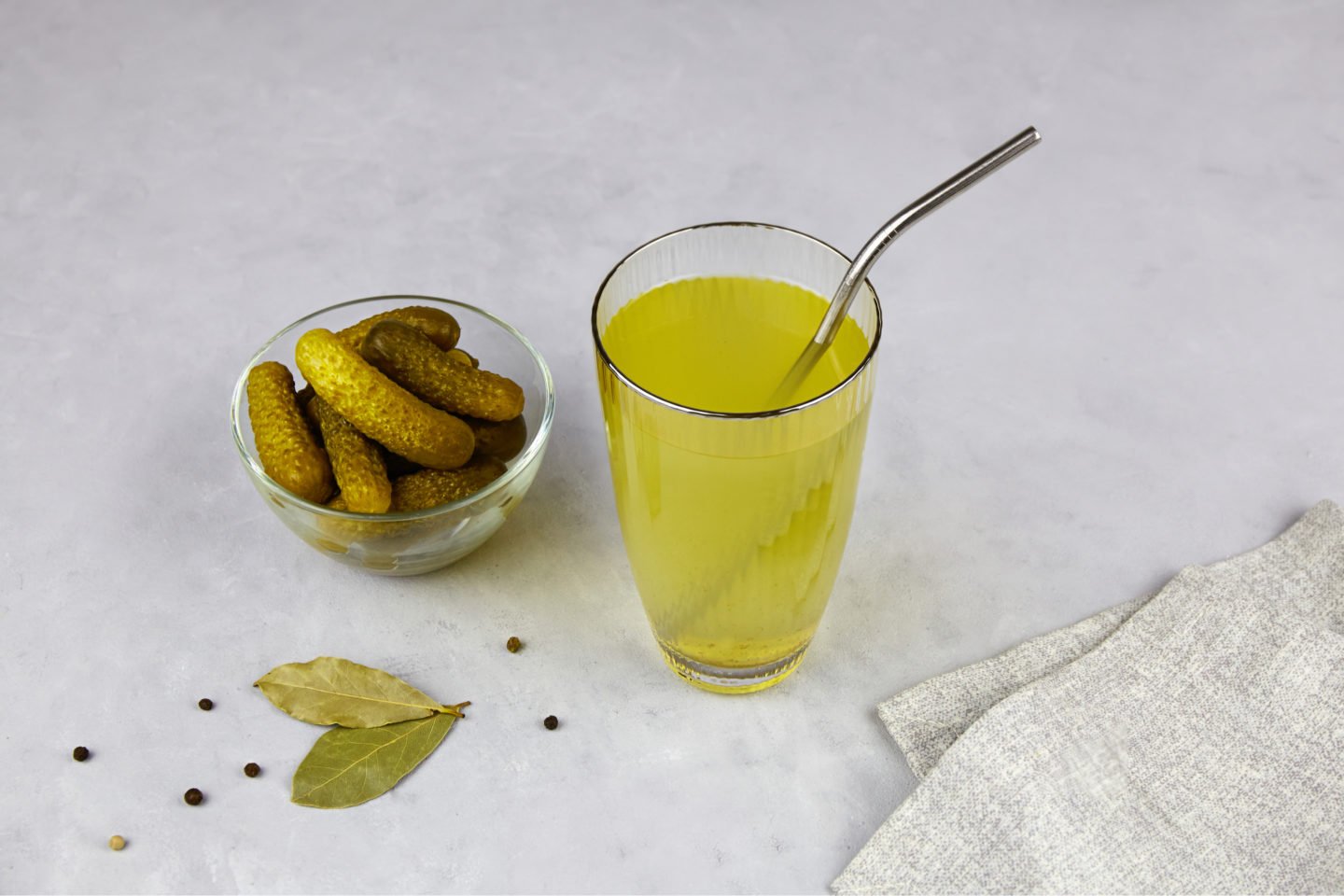
Pickle juice contains high amounts of sodium which draws water into the gut, softening the stool. Pickles are also a great source of fiber which facilitates digestion, resulting in the easier passage of stool. However, taking too much sodium leads to dehydration, constipation, weight gain, and other severe complications like hypertension and increased risk for stomach cancer.
This article will discuss everything you need to know about pickle juice and its effects on constipation, diarrhea, and other essential health functions. This article will also cover additional benefits you get from pickles, the side effects of drinking too much pickle juice, and answer other related questions.
Table of Contents
How Does Pickle Juice Make You Poop?
Pickle Juice Has High Sodium Content
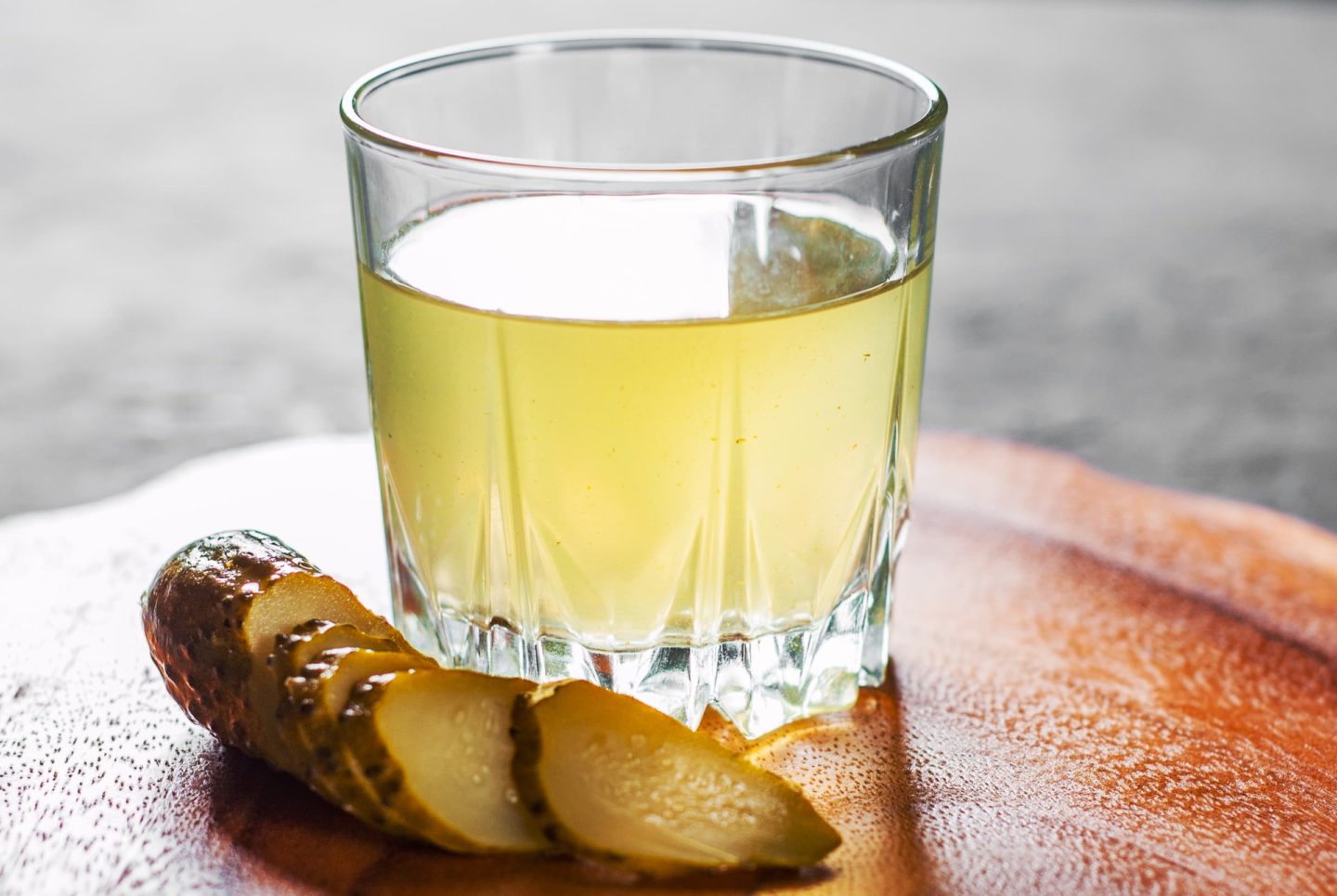
Once constipated, people often have hard and lumpy stools that result from a lack of water intake or dehydration. Salt and water provide a natural laxative effect when ingested in excessive amounts. When in the gut, salt or sodium attracts water, softening the stomach contents and stool, facilitating easier passage.
As a part of a healthy diet, adults can take up to 2,300 milligrams of sodium daily. Every 100 grams of pickle juice contains around 500 milligrams of sodium or about 20% of the daily allowed intake.
Saltwater Flush and Constipation
A Healthline article on salt water flush stated its laxative effect when taken before breakfast. This cleansing method's supporters promote it, especially for people who experience chronic constipation or irregular bowel movements. They also recommend this process as a practical part of a detox or juice fast.
To make a salt water flush, dissolve two teaspoons of salt, preferably non-iodized salt like Pink Himalayan salt, in four cups of water. Adding lemon juice to the mixture may enhance the flavors, and drink with an empty stomach. You can feel relief after 30 minutes to an hour of drinking the salt water.
However, note that salt water flush is not for everyone. High-sodium drinks raise blood pressure and are therefore prohibited if you have a history of hypertension.
Vinegar Acts As A Laxative
As a potent acid, vinegar in dill pickle juice helps you poop by acting as a laxative by adding acidity to the stomach, triggering it to release some through defecation. If you wish to have a safer alternative to regular vinegar used in store-bought pickles, you can make them at home and use apple cider vinegar instead of white vinegar.
However, while others are more tolerant of acidic foods and beverages, people with acid reflux or gastroesophageal reflux disease should look out for the acid content as it may trigger symptoms such as heartburn.
Pickles Contain Fiber That Promotes Faster Bowel Movement
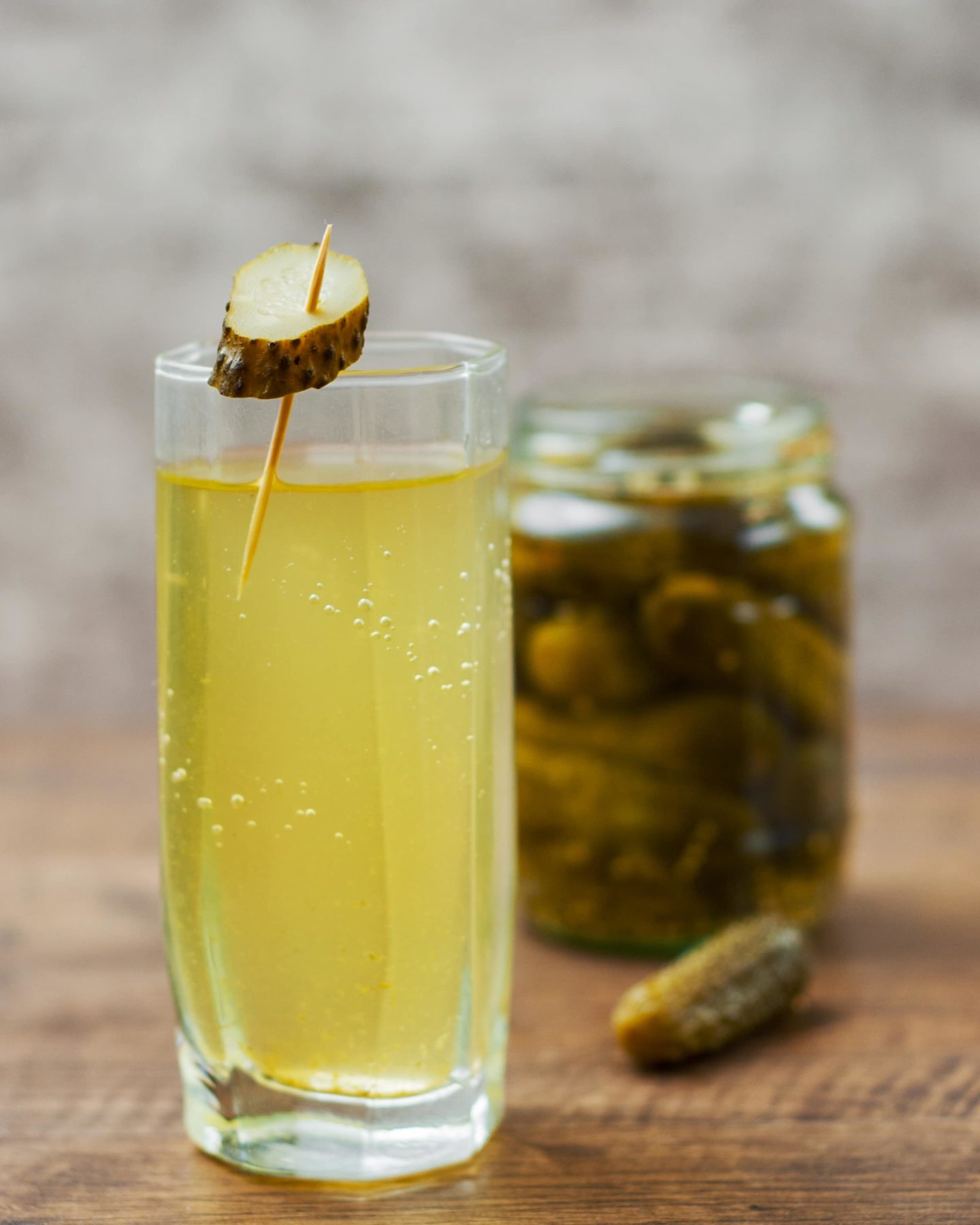
Pickled cucumber is also a great source of fiber. Fiber is a type of carbohydrate that remains intact after ingestion. The body lacks the enzymes to digest fiber, and together with water and other digested food, it forms the stool and facilitates easy passage. Without fiber, it takes more time to bulk up the stool, which stays longer in the intestines, causing constipation.
A cup of pickled cucumber contains 1.9 grams of fiber. However, if you're only going to drink pickle brine, you can't benefit from the fiber in the vegetable.
Pickles Are A Great Source of Probiotics
Fermented pickles are a rich source of probiotics. What advantages come from taking probiotics? It may be difficult to swallow, both literally and figuratively, the thought of ingesting a few billion bacteria every day for your health, given that bacteria are known to be disease-causing.
But a growing corpus of scientific research indicates that some foods and supplements with live bacteria treat and even prevent various ailments. For example, in a 2014 study, researchers looking for studies on the advantages of probiotics in treating constipation discovered that they decreased "gut transit time" by 12.4 hours, increased the number of bowel movements per week by 1.3, and helped soften stools, so they were easier to pass.
Not only do probiotics in fermented food, including pickles, promote digestion, but they also promote overall digestive health. Consuming probiotic food prevents irritable bowel syndrome and ulcerative colitis. It also deters the growth of other invasive bacteria that cause severe infections like Clostridium and Helicobacter.
Pickle Juice and Diarrhea
Since water goes where salt is, your gut gathers more water in the stomach than usual when taking high amounts of sodium. So the body tries to eliminate the excess salt in the gut by initiating a bowel movement. However, due to the water drawn into the intestines, the body also forces it out, resulting in more frequent pooping.
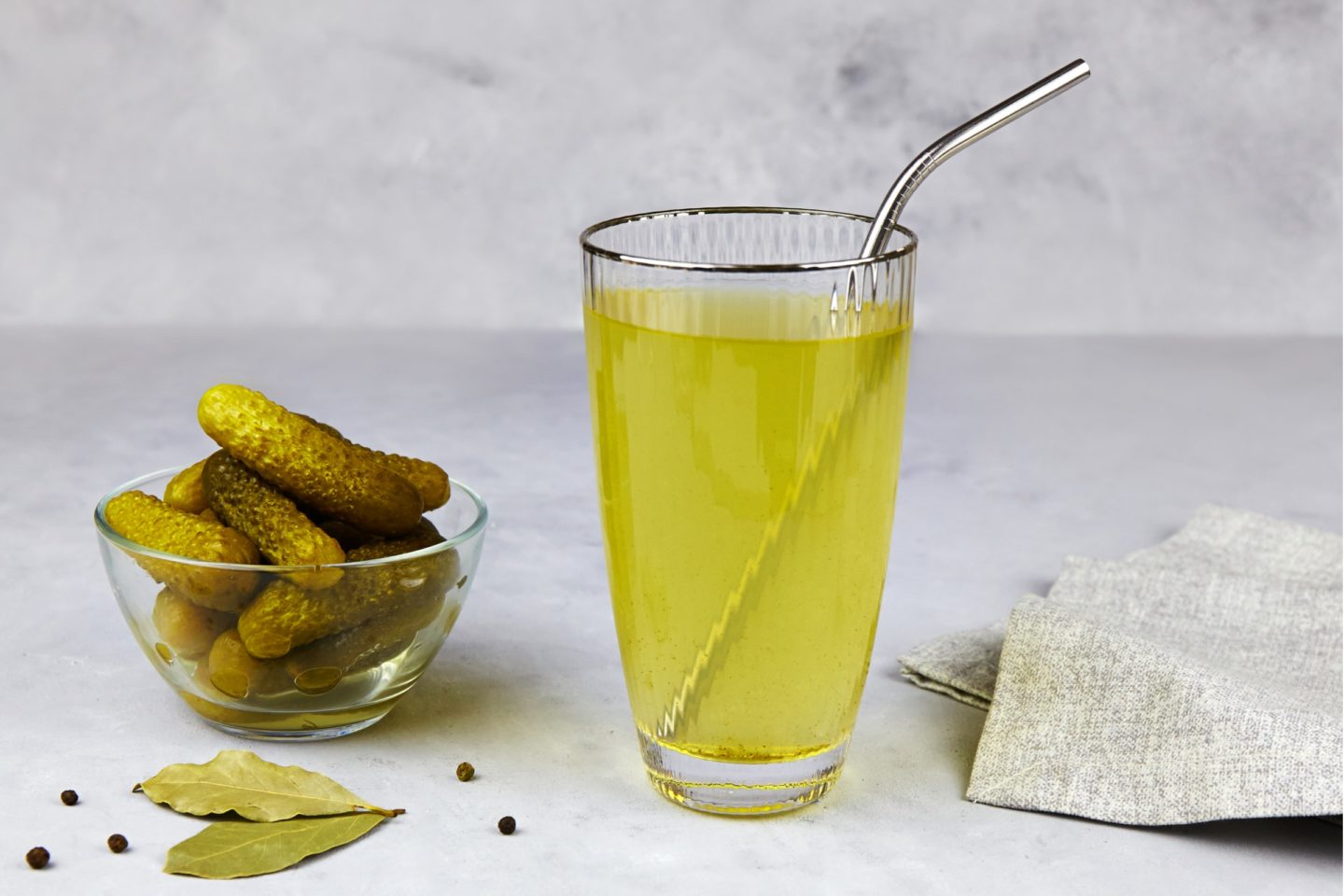
Once this happens, it is essential to stay hydrated as excess sodium gets deposited in the tissues, promoting water deposition as well. This phenomenon enables you to gain more weight, also known as the "water weight," and is not advisable when trying to lose some pounds.
Pickles and pickle juice also cause indigestion, gas, bloating, and upset stomach. The vinegar in pickle juice also acts as an irritant, especially at concentrated levels. Since pickles are made with a 1:1 water to vinegar ratio, it is considered concentrated and should be off the list for people with digestive problems.
Pickle Juice and Constipation
While drinking pickle juice may help you poop and offer immediate constipation relief, continuous intake worsens your constipation. In addition, since sodium retains water, your body will need more water once sodium is deposited in the tissues. That would mean taking out water from other sources, just like the stomach.
Once this happens, there won't be enough water in the gut to hydrate the water contents, resulting in lumpy stools and difficult passing.
Pickle Juice And Weight Loss
While we know vinegar as a popular home remedy for weight loss, the salt content in pickle juice is concerning. Salt requires water, and instead of peeing excess fluid, they leave the stomach and enter the tissues, adding more weight, also known as water weight, causing you to look puffier than you actually are.
If you wish to add pickles to your diet to achieve weight loss, I suggest you leave the pickle juice and save your body from more pounds. However, some low-sodium and no-sodium pickle alternatives contain a small amount of salt that you can go for.
Other Benefits of Drinking Pickle Juice
An Excellent Post-workout Drink
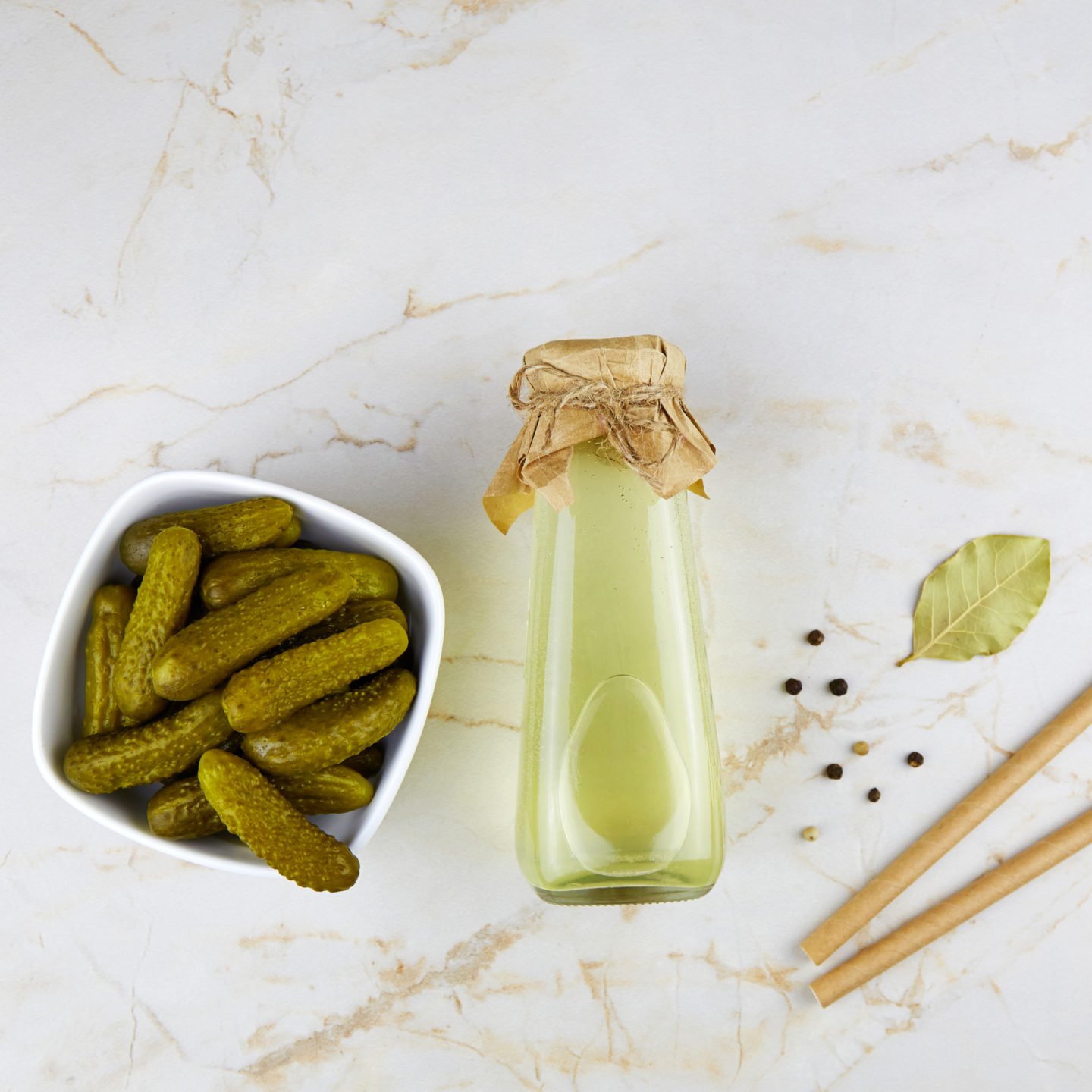
After a strenuous workout, a small glass of pickle juice might not sound like the most delightful beverage, but it can speed up your body's recovery. Pickle juice is full of electrolytes, which can restore the body's fluid balance after exercise-related perspiration. In addition, pickle juice helps replenish the body's salt, potassium, and magnesium stores.
Regulating Blood Sugar Levels
The acetic acid in the vinegar in pickle juice regulates blood sugar levels. Diabetes Research and Clinical Practice article states that consuming vinegar in appropriate amounts helps regulate insulin release and manages blood sugar after a meal better than the control group.
Cures Hangovers
Pickle juice could help if you're aching from drinking too many cocktails the night before. Alcohol extensively dehydrates the body, and pickle juice's electrolytes aid in rehydrating it. As a result, pickle juice may reduce hangover symptoms and hasten your recovery.
Relieves Muscle Cramps
Pickle juice can help with muscular cramps. For people who are sore after working out, this could be useful. According to a 2010 research study, dehydrated males who consumed ⅓ cup of pickle juice had quicker recovery from arm and leg cramps. Moreover, pickle juice contains vinegar, which scientists think is what causes immediate pain alleviation.
Side Effects of Drinking Too Much Pickle Juice
High Blood Pressure
Aside from sodium's swelling and bloating effects, it also raises blood pressure. That is because salt requires water, and the excess water in the circulation adds stress to your heart and blood vessels, causing increased blood pressure.
Indigestion and Abdominal Cramping
Drinking too much pickle juice causes indigestion, bloating, gas formation, and abdominal cramping. However, this factor remains subjective, as many people also testify otherwise.
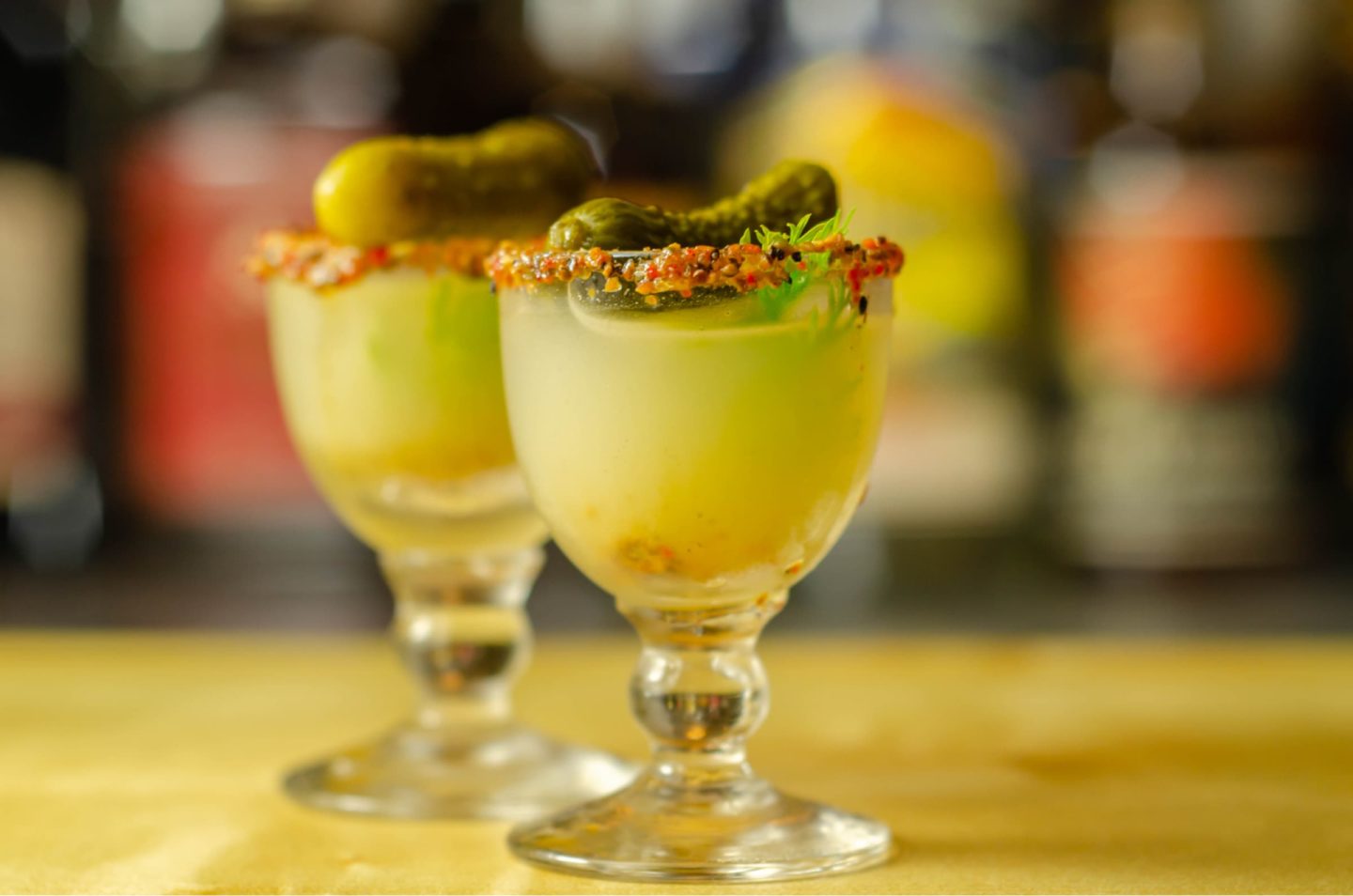
Related Questions
Pickle juice shouldn't be consumed in excess—more than 4-6 ounces at once might lead to excessive gas, cramps, stomach pain, and flatulence.
Yes. Once excess salt is in the digestive tract, water follows, making way for loose stools and sometimes abdominal discomfort and nausea.
Daily consumption of pickle juice causes water to leak out of the cells and into the tissues, causing dehydration. When there is not enough water in the tissues, they will take water from the stomach, causing dehydration and, eventually, constipation.

Leave a Reply